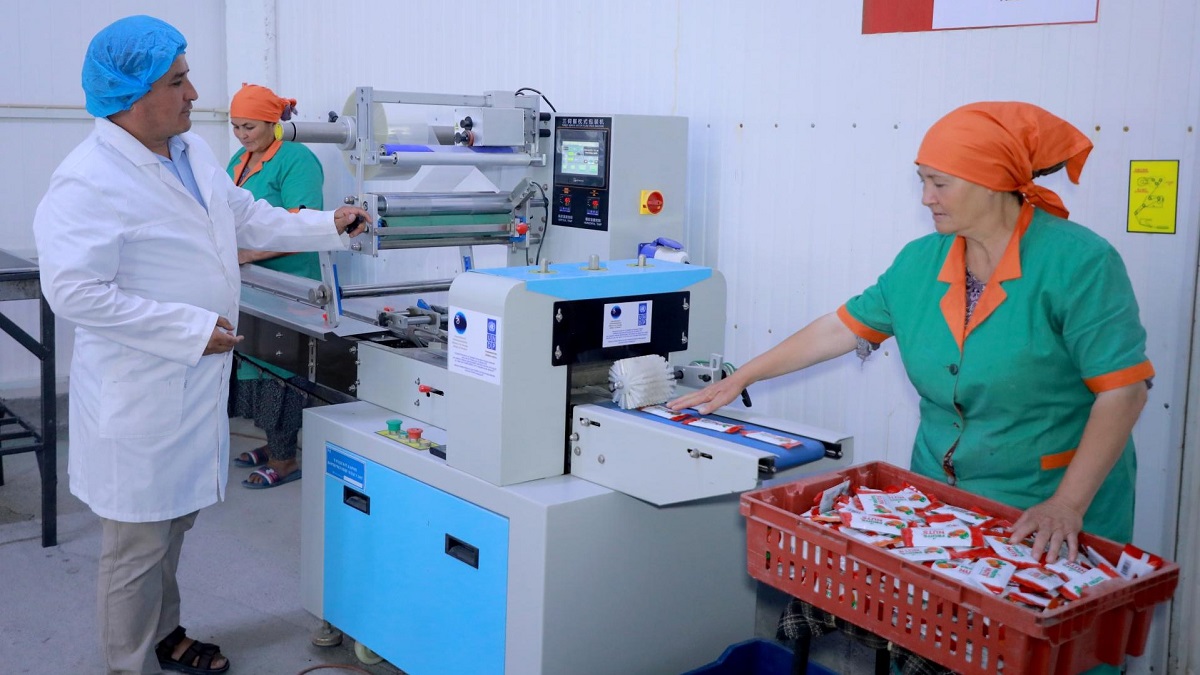New UNCTAD analysis explores ways to unleash the landlocked nation’s economic potential through a more conducive environment for investment and businesses.

© UNDP Tajikistan | A fruit processing factory in the city of Isfara in northern Tajikistan.
Nestled among soaring mountains and a sprawling desert, Tajikistan was once part of the historic Silk Road – a major network of Eurasian trade routes dating back centuries.
To this day, pursuing greater trade and investment opportunities remains a priority for the Central Asian economy.
Its national strategy for 2016 to 2030 calls for $118 billion to accelerate sustainable development, with 46% of the funding – around $55 billion – to be mobilized from the private sector.
To do so, it has underlined the need to foster private-sector-led growth and attract foreign investment.
Over the past few years, particularly since receiving UNCTAD’s investment policy review (IPR) in 2016, Tajikistan has adopted various policy measures, such as a new investment law and a new tax code, to become more investment- and business-friendly.
At Tajikistan’s request, in 2021 UNCTAD began to evaluate the country’s progress in implementing recommendations from the IPR.
Findings from the assessment are available in a recent report, which also spells out additional actions – based on UNCTAD’s investment policy framework for sustainable development – to realize Tajikistan’s investment and entrepreneurship potential.
Investment flows
The report shows that foreign direct investment (FDI) flows have remained a steady source of financing for Tajikistan, averaging 4.1% of its GDP between 2016 and 2020.
Despite a COVID-19-induced downturn in 2020, FDI rebounded to close to pre-pandemic levels, reaching $340 million in 2021.
But based on various FDI indicators, Tajikistan still has room to catch up with its regional peers.
The country’s inward FDI stock for instance, which stood at $3.2 billion in 2021, was the smallest among the Commonwealth of Independent States.
Looking at the sectoral distribution, mining and quarrying has over the past decade reinforced its position as the most attractive sector, whose share in Tajikistan’s total FDI inflows averaged 57% between 2017 and 2021.
“This comes with some challenges, given the impact of the sector on the environment,” the report says, as Tajikistan is already prone to climate hazards such as droughts, floods and heat stress due to its mountainous terrain.
It also flags dwindling FDI in sectors such as manufacturing, construction, telecommunications and agriculture, cautioning that such trends risk undermining the nation’s ability to process domestic raw materials and create high-quality value chains.
Need to reinforce legislation
The report outlines key actions needed to further strengthen investment policymaking and institutions in Tajikistan.
It points out that the country’s law on investment still lacks key provisions – such as clarifications on the restrictions to the entry of foreign investors – and investment contracts remain a key instrument, leading to a multiplication of incentive regimes.
It therefore calls on authorities to progressively phase out such contracts and focus investment incentives on priority sectors – within a common legislative framework to better assess impact and benefits.
It also recommends amendments related to facilitating value-added tax refunds, streamlining corporate income tax rates in the tax code, as well as improving mechanisms to avoid double taxation for non-resident companies.
How to enhance investment promotion
On efforts to promote investment, the report notes that Tajikistan’s approach “remains of a traditional nature”, as it continues to rely on marketing and promotion through fairs and trade shows.
It encourages the country to formulate a strategy to maximize, in the long term, investment promotion synergies among government entities that have sectoral mandates in trade, agriculture, foreign affairs and other areas.
It also recommends modernizing the work of TajInvest, the national agency tasked with investment promotion.
“In practice, the activities of TajInvest should be organized around four key functions: image-building, targeting, facilitation and aftercare,” the report says.
“The communication strategy of TajInvest should also include developing websites and other material in widely used languages, including, in particular, English,” it adds.
Call to build absorptive capacities
The report also urges redoubling efforts to build so-called absorptive capacities, or firms’ ability to assimilate and apply external knowledge to improve their business.
Tajikistan can cultivate such capacities by fostering stronger entrepreneurship, human resources development, innovation and business connections between local and foreign companies. Doing so will help the country reap greater benefits from FDI and in turn, boost its investment attraction.
“This will require strategic decisions, legislative and regulatory changes, in particular regarding the residence and work permit of foreigners and the re-examination of the [current] quota system,” the report says.
Objective assessments, practical recommendations
Since 1999, 56 economies have benefited from UNCTAD’s investment policy review programme.
The programme proposes action-oriented and tailored recommendations, aimed at enhancing a country’s investment climate, in line with sustainable development and national development objectives.
It provides objective assessments of a country’s legal, regulatory and institutional framework to bolster investment and maximize its benefits.
Areas of evaluation often include FDI entry and establishment, treatment and protection of investment, taxation, labour, competition, environment, governance and sectoral regulations.


